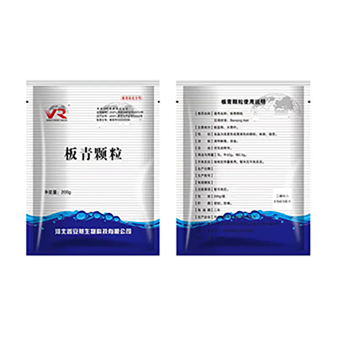- Afrikaans
- Albanian
- Amharic
- Arabic
- Armenian
- Azerbaijani
- Basque
- Belarusian
- Bengali
- Bosnian
- Bulgarian
- Catalan
- Cebuano
- Corsican
- Croatian
- Czech
- Danish
- Dutch
- English
- Esperanto
- Estonian
- Finnish
- French
- Frisian
- Galician
- Georgian
- German
- Greek
- Gujarati
- Haitian Creole
- hausa
- hawaiian
- Hebrew
- Hindi
- Miao
- Hungarian
- Icelandic
- igbo
- Indonesian
- irish
- Italian
- Japanese
- Javanese
- Kannada
- kazakh
- Khmer
- Rwandese
- Korean
- Kurdish
- Kyrgyz
- Lao
- Latin
- Latvian
- Lithuanian
- Luxembourgish
- Macedonian
- Malgashi
- Malay
- Malayalam
- Maltese
- Maori
- Marathi
- Mongolian
- Myanmar
- Nepali
- Norwegian
- Norwegian
- Occitan
- Pashto
- Persian
- Polish
- Portuguese
- Punjabi
- Romanian
- Russian
- Samoan
- Scottish Gaelic
- Serbian
- Sesotho
- Shona
- Sindhi
- Sinhala
- Slovak
- Slovenian
- Somali
- Spanish
- Sundanese
- Swahili
- Swedish
- Tagalog
- Tajik
- Tamil
- Tatar
- Telugu
- Thai
- Turkish
- Turkmen
- Ukrainian
- Urdu
- Uighur
- Uzbek
- Vietnamese
- Welsh
- Bantu
- Yiddish
- Yoruba
- Zulu
វិច្ឆិកា . 22, 2024 07:05 Back to list
what medicine is good for rsv
Understanding RSV and Effective Medicines
Respiratory Syncytial Virus (RSV) is a common virus that primarily affects the respiratory tract. While it typically results in mild cold-like symptoms in healthy adults and older children, it can be more severe in infants, elderly individuals, and those with weakened immune systems. Understanding the nature of RSV and the available medical treatments can significantly help in managing this illness.
What is RSV?
RSV is a highly contagious virus that spreads through respiratory secretions, such as saliva, mucus, or nasal discharge. It can be transmitted through direct contact with infected individuals or contaminated surfaces. The virus usually circulates during fall and winter months, leading to seasonal outbreaks. Most children will have contracted RSV by the time they reach the age of two.
Symptoms of RSV
The symptoms of RSV can range from mild to severe. Common symptoms include
- Coughing - Sneezing - Nasal congestion - Fever - Wheezing - Shortness of breath
In severe cases, RSV can lead to bronchiolitis or pneumonia, which require medical attention. Notably, infants younger than six months are at the highest risk for severe complications from RSV.
Treatment Options
Currently, there is no specific antiviral medication for RSV. Treatment primarily focuses on relieving symptoms and providing supportive care. Here are some measures that can help
1. Hydration Keeping the patient well-hydrated is crucial, especially in infants and young children. Dehydration can worsen the symptoms and lead to complications.
2. Nasal Suctioning For babies, using a bulb syringe to gently suction mucus from the nose can help ease breathing difficulties.
what medicine is good for rsv

3. Humidified Air Using a humidifier in the room can provide comfort and alleviate the discomfort caused by dry air. Warm steam inhalation can also help.
4. Fever Reduction Over-the-counter medications like acetaminophen or ibuprofen can be administered to reduce fever and relieve discomfort. However, it’s essential to follow the dosage guidelines and consult a pediatrician for infants.
5. Bronchodilators In some cases, doctors may prescribe bronchodilators to help open the airways, particularly in patients experiencing significant wheezing.
6. Oxygen Therapy For children experiencing difficulty breathing, supplemental oxygen might be necessary to ensure adequate oxygen levels are maintained.
7. Hospitalization In severe cases, particularly among infants or elderly patients, hospitalization may be required. This allows for closer monitoring and administration of more intensive care, such as intravenous fluids and respiratory support.
Prevention Strategies
Preventing the spread of RSV is equally crucial. Here are some effective measures
- Hand Hygiene Regular handwashing with soap and water can help reduce the risk of infection. Parents should encourage children to wash their hands frequently, especially after playing with other children or touching common surfaces.
- Avoiding Exposure Keeping infants away from crowds and individuals who have respiratory illnesses can lower their chances of contracting RSV.
- Vaccination While there is currently no vaccine for RSV, high-risk infants may be eligible for a preventive medication called palivizumab. This monoclonal antibody can help prevent severe RSV disease.
Conclusion
In summary, while there is no specific medicine for treating RSV, understanding the symptoms and effective management strategies can help mitigate the impact of the virus. Supportive care remains the cornerstone of treatment, emphasizing the importance of hydration, symptom relief, and monitoring for any complications. Continued research is essential to develop effective vaccines and therapeutics for this prevalent virus, ultimately reducing the burden of RSV on vulnerable populations. Always consult with a healthcare professional if you suspect RSV or have concerns about its management.
-
Guide to Oxytetracycline Injection
NewsMar.27,2025
-
Guide to Colistin Sulphate
NewsMar.27,2025
-
Gentamicin Sulfate: Uses, Price, And Key Information
NewsMar.27,2025
-
Enrofloxacin Injection: Uses, Price, And Supplier Information
NewsMar.27,2025
-
Dexamethasone Sodium Phosphate Injection: Uses, Price, And Key Information
NewsMar.27,2025
-
Albendazole Tablet: Uses, Dosage, Cost, And Key Information
NewsMar.27,2025













